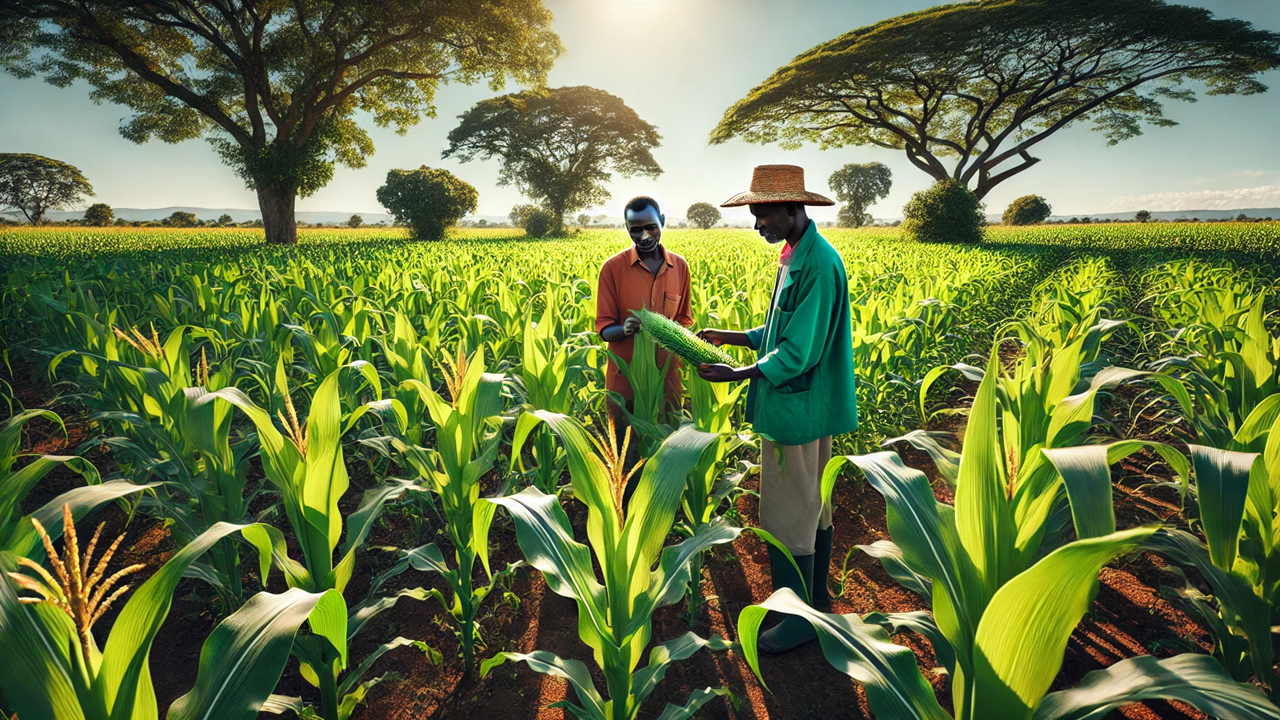Malawi and WFP Sign Agreement to Import 48,000 MT of Maize to Combat El Niño-Induced Hunger
US$ 35 million deal backed by the World Bank aims to address acute food insecurity and support vulnerable households across Malawi.

- Country:
- Malawi
The United Nations World Food Programme (WFP) and the Government of Malawi have entered into an agreement to import 48,000 metric tons of maize, valued at US$ 35 million, to help address the food insecurity crisis exacerbated by the El Niño-induced drought. The funds for the maize shipment are provided by the World Bank Group under a financing agreement designed to support countries affected by climate-related emergencies.
The maize will be sourced from Tanzania and transported to Malawi to fill critical food deficits caused by the severe drought, which has left 5.7 million people in need of food assistance. According to the agreement, the imported maize will be distributed to approximately 954,000 households across the country, offering much-needed relief to communities struggling with hunger.
Charles Kalemba, Commissioner for Disaster Management Affairs in Malawi, emphasized the significance of the agreement, stating, “This is a significant step in complementing the Government of Malawi’s efforts in providing relief assistance to food-insecure households across the country. The gesture reflects our commitment to alleviating hunger and improving food security, as outlined by President Dr. Lazarus McCarthy Chakwera when he declared a state of disaster last year.”
WFP's Commitment to Addressing the Crisis
Eric Perdison, WFP Regional Director for Southern Africa, reaffirmed the organization’s dedication to ensuring that food reaches those most in need: “WFP is focused on making sure critical resources reach the people who need them most. This collaboration demonstrates the strength of partnerships in tackling the challenges caused by climate-related crises.”
The World Bank has also played a pivotal role in addressing the food crisis in Malawi. Firas Raad, the World Bank’s Country Manager for Malawi, highlighted the organization’s contribution to alleviating the crisis: “The World Bank mobilized US$ 50 million earlier this year to help Malawi tackle the impact of the El Niño-induced drought. We hope this financing will provide greater food security to vulnerable households, and we are proud of our close collaboration with WFP.”
Crisis Emergency Response Component (CERC) Funding
This agreement is part of the Crisis Emergency Response Component (CERC), a program under the Food Systems Resilience Program for Eastern and Southern Africa – Phase 3. This World Bank initiative allows countries to quickly access resources in times of emergency. The maize shipment is expected to provide immediate relief to food-insecure populations and support over 2 million people with ongoing food assistance, including malnutrition treatment and school meals.
Impact of El Niño on Malawi’s Food Security
Malawi is grappling with acute food insecurity, with 44% of crops affected by the El Niño-induced drought, which has caused widespread crop failure across the country. The maize imported under this agreement will help fill some of the gap until the next harvest, expected between April and July 2025.
In addition to maize distribution, WFP is providing logistics support to the Government of Malawi, assisting with the transportation of maize to distribution points across the country. This support is critical to ensuring that food reaches remote and vulnerable communities.
WFP’s Broader Efforts to Address Hunger in Malawi
Beyond the immediate maize importation, WFP continues to provide vital food aid, including malnutrition treatment programs and school meals. The organization is currently supporting over 2 million people across Malawi with food assistance, including targeted programs to address acute malnutrition in children and vulnerable populations.
WFP’s Regional Director for Southern Africa, Eric Perdison, emphasized the importance of this international cooperation, stating, “The partnership between the Government of Malawi, WFP, and the World Bank highlights the power of collective action in addressing food insecurity and ensuring that vulnerable communities have access to nutrition.”
This collaboration between the Government of Malawi, WFP, and the World Bank represents a crucial step in addressing the humanitarian crisis exacerbated by climate shocks such as the El Niño drought. With 48,000 metric tons of maize set to reach 954,000 households, the agreement offers immediate relief while laying the groundwork for long-term food security solutions in Malawi. The combined efforts of these organizations will help mitigate the devastating effects of the drought, ensuring that communities have access to the food they need to survive and recover.
- READ MORE ON:
- Malawi
- World Food Programme
- Hunger
- Charles Kalemba










